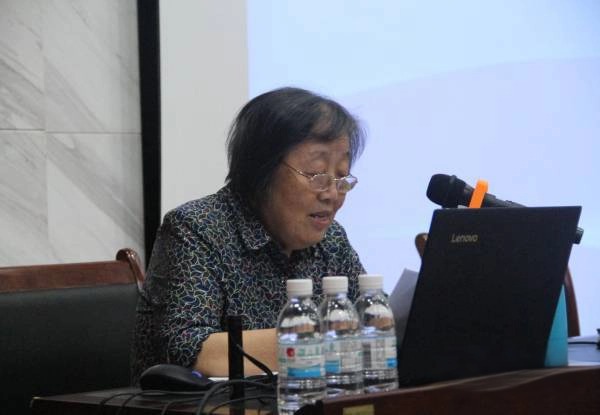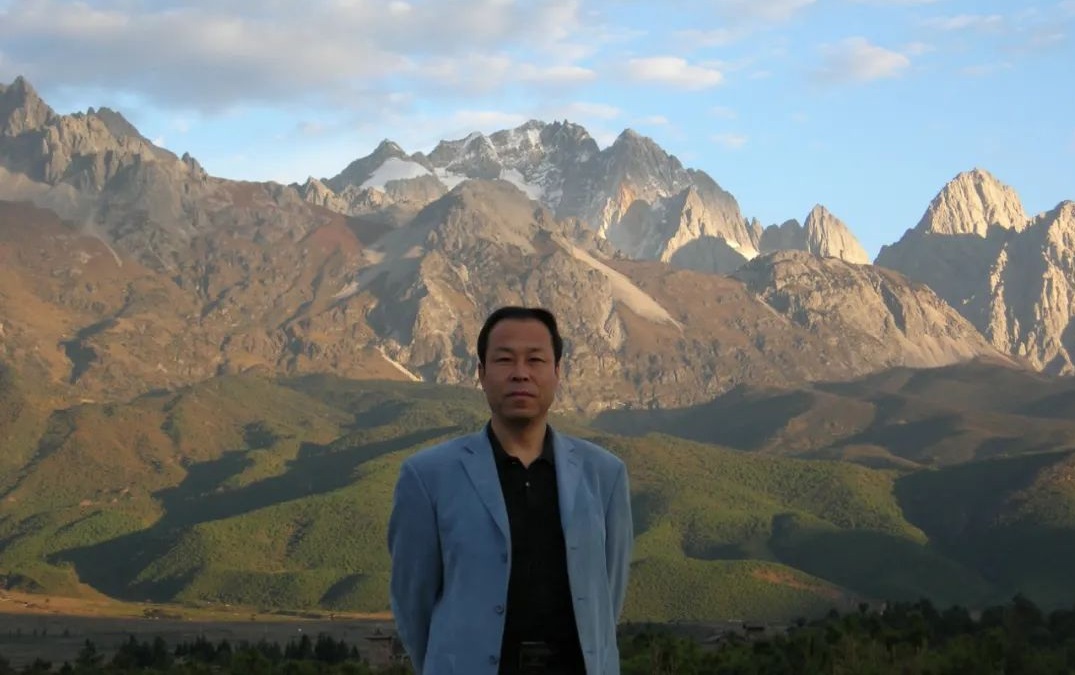监察法学原理
《监察法学原理》是中国社会科学院法学研究所、国际法研究所、中国社会科学院大学纪检监察法学研究团队,联合南方科技大学廉洁治理研究院纪检监察学研究中心、国内著名纪检监察学者和纪检监察一线相关人员,群策群力、团结协作形成的一项重大研究成果,也是纪检监察法学学科体系、学术体系和话语体系建设的又一重要成绩。该书的出版,将进一步明确监察法学的学科属性和定位,阐明基本立场和命题,廓清核心术语和范畴;将有助于提升纪检监察法治理论水平,推进纪检监察工作规范化法治化正规化建设。
《监察法学原理》一书注重政治性与科学性、理论性与实践性的统一,注重多元研究方法的融汇使用,注重学习借鉴基础上的创新。全书近五十万字、十三章,分为三个部分:第一部分(第一、二章),从监察、监察权、监察制度、监察法等基本概念入题,追本溯源、正本清源,回顾了古今中外监察制度和理论的演进和发展,廓清了重要相关概念和命题;第二部分(第三一十二章),紧密结合《监察法》《监察官法》《监察法实施条例》等的规定及相关释义,融合实务操作、域外相关制度、学界讨论等,勾勒了监察法学的基础原理,同时对监察权的性质、监察职权行使原则、监察法和监察法规的属性等重要理论问题予以回应;第三部分(第十三章),就监察法与党纪法规的贯通衔接进行了深入阐释。
现代道德哲学的文学化:艾丽丝·默多克的创作思想研究
本书结合英国著名小说家、哲学家艾丽丝·默多克的哲学著作、文学评论以及文学作品,分析了她的哲学思想和文学实践之间的共性与差异性,尝试厘清在其思想中文学与哲学之间相互补充、相互支撑、相得益彰的脉络,析出其文学、哲学思想的基本要素和内在逻辑,从出发点、核心概念、创作论和阐释论四个方面勾勒默多克的创作思想体系,并通过对其小说创作中道德性的文学诠释,阐述了默多克的哲学思想在文学实践中的演绎和呈现。本书拓展了国内外默多克研究的维度,为文学与哲学跨学科研究提供了新参考,是一部理论性和可读性很强的学术著作。
文化·价值·现代性:舍勒哲学思想研究
在现代哲学发展中,舍勒的思想展开于现象学、伦理学、知识社会学、哲学人类学等诸多领域,他的思想以片段性、零散著称,其实他的思想是一个统一的哲学体系,具有强烈的现实关怀和社会历史指向。舍勒的哲学思想致力于解决时代问题,即文化危机,这种文化危机又引发了价值失序与现代性危机。本书通过探讨舍勒哲学思想的文化之维、价值之维、现代性之维,揭示其哲学思想的整体架构和多维内涵,昭示其思想在解决人的精神困境、社会失序与现代性危机等方面依然具有当代价值。
授权立法范围研究
作为一种特殊的立法行为,授权立法的实施理应限定在特定的范围内。在传统观点中,授权立法范围一般仅指授权立法的权限范围。但从授权立法的理论和实践分析,授权立法范围除授权立法权限范围之外,还应当包括授权立法主体范围和授权立法期限范围。国内外授权立法范围均经历了从宽泛到明确的演变历程。
授权立法主体包括授权主体和受权主体。从各国授权立法实践观察,授权立法主体的范围尚无明确规范的要求。应当为授权立法主体设定范围,按照一定的原则以实际需要和工作职能为依据设定授权立法主体的资格条件。授权立法权限范围也是实施授权立法的权限边界,是立法事项中可授权和不可授权的界限。法律保留理论,特别是重要性理论,为授权立法权限范围提供了理论支撑。我国授权立法权限范围的确定在一定程度上也遵循了法律保留理论,但还存在规定笼统、缺乏逻辑自洽等问题。授权立法期限范围规定了立法授权书的时间范围,对授权立法具有重要意义。实践中,部分国家规定授权必须要明确授权期限,部分国家对此并无明确要求。早前,在我国的授权立法中,无论是专门性授权立法还是一般性授权立法,均无明确的授权期限要求,这造成了实践中的诸多困扰。2015年修正的《立法法》增加了对授权立法期限的明确要求,完善了我国授权立法期限范围制度。
为防止授权立法超越范围,建立有效的监督机制十分必要。西方国家对授权立法的监督主要有立法监督和司法监督。在立法监督中,立法机关以程序原则和越权原则为依据,监督授权立法在范围内规范运行;在司法监督中,司法机关按照相应的标准实施司法审查监督,以监督授权立法行为不得超越范围。我国主要通过批准、备案和审查等立法监督机制监督超越授权立法范围的行为。在监督效果上,我国的监督机制还有进一步完善的空间。
为进一步明确授权立法范围,规范授权立法的实施,建议从统一授权立法的概念范畴、限定授权立法的主体范围、厘定授权立法的权限范围、规范授权立法的期限范围、健全授权立法的监督机制五个方面完善相关制度。
在内容构成上,本书共分导论、本论和结语三部分。本论是本书的主体部分,共由六章组成。
第一章阐述授权立法范围的一般理论。以授权立法范围的界定为切入点,对授权立法范围的理论依据和法律依据进行探讨,从横向和纵向两个角度分析授权立法范围的作用,对授权立法范围的发展演变进行回顾。
第二章研究授权立法主体范围。本章对授权立法主体的种类和特征进行归纳,并通过考察中西方国家授权立法的实践,对确定授权立法主体范围的原则和依据以及授权立法主体的资格条件进行思考,指出我国授权立法主体范围存在的问题。
第三章研究授权立法权限范围。授权立法权限范围是授权立法范围的核心。通过对立法权限划分的回顾,考察中西方国家授权立法权限的实践,对授权立法权限范围中的有关理论和实践问题进行讨论,并以《立法法》第8条、第9条为分析对象,对我国授权立法权限范围进行反思。
第四章研究授权立法期限范围。授权立法期限范围对授权立法具有重要的意义。本章对中西方国家授权立法期限范围的具体做法进行考察,并就授权期限届满后的处理方式进行讨论。
第五章研究控制超越授权立法范围的有关问题。有效的监督机制是防控超越授权立法范围的重要途径。本章从超越授权立法范围行为的类型和控制理据入手,对西方国家的立法和司法监督机制进行考察,分析我国的立法监督方式及具体标准,指出我国在授权立法监督方面存在的问题和不足。
第六章提出完善我国授权立法范围的建议。针对我国在授权立法范围方面存在的问题,建议从五个方面完善我国授权立法范围的相关规定。
关键词:授权立法;授权立法范围;授权立法主体范围;授权立法权限范围;授权立法期限范围;法律监督
Abstract
As a special legislative action,it should be restricted in specific scope for the implementation of delegated legislation.In traditional view,the scope of delegated legislation only generally refers to the scope of delegated legislative power.Analyzed on the theory and practice of delegated legislation,besides the scope of delegated legislative power,the scope of delegated legislation should include the scope of authority and the term of delegated legislation.The scope of delegated legislation has went through the evolution from broad to explicit at home and abroad.
Theauthority of delegated legislation include the delegating authority and delegated authority.Based on the observation of the practice of delegated legislation of countries,it has not been asked for explicit normative requirements for the authority of delegated legislation.The authority of delegated legislation should be set scope and the qualification of authority of delegated legislation by a certain principles and the actual demand and responsibility.The scope of delegated legislative power also is the confine of competence of delegated legislation and the authorized and unauthorized matters in legislation.The theory of law reservation,especial the materiality theory,is the theoretical support for the scope of delegated legislative power.In China,the determination of the scope of delegated legislative power has obeyed the law reservation in a certain extent,but it still had flaws such as regulation ambiguity and without Logic self-consistent.The scope of term of delegated legislation stimulate the extent of empowered term,which is very important for delegated legislation.In practice,some countries claimed that delegated legislation must be specified the term of ment explicitly.But another countries who had not specified the term of empowerment explicitly.In earlier time,in our delegated legislation,not only specialized delegated legislation but also generalized delegated legislation had not regulated the demand of delegated term which made numerous puzzles in practice.In 2015,When the Legislation Law of P.R.C.was amended,it was added to the provision of term which improved the rule of scope of term of delegated legislation in China.
In order to control the legislative activitieswhich transcend the scope of delegated legislation,it is necessary for delegated legislation to be established effective supervisory mechanism.There are mainly legislative supervision and judicial supervision in The Western.In legislative supervision,based on legislative process and principle of ultra vires,the legislative authority supervised the implementation of empowered legislation in the scope of empowerment.In judicial supervision,for supervising the delegated legislation without transcending the scope of empowerment,the judicial authority carried out judicial examination and supervision by a certain standards.In China,it mainly includes approval,recordation and examination to control the behavior which would transcend the scope of delegated legislation.In the effect of supervision,the supervisory mechanism still has roomage to improve in China.
For specifying the scope of delegated legislation further and normalizing the implementation of authorized legislation,the paper suggested that we should unify the scope of conception of delegated legislation,prescribe a limit to the scope of theauthority of delegated legislation,determine the scope of delegated legislative power,normalize the scope of the term of delegated legislation,complete the scope of the supervisory mechanism of delegated legislation to improve the interrelated institution.
In the composition of contents,the paper includes three parts which are introduction,principal argument and conclusion.Principal argument is the body of the paper which includes six chapters:
ChapterⅠstated a general theory of delegated legislation.It was started from the definition of delegated legislation,discussed the scope of theoretical and legal ground of delegated legislation,analyzed the function of scope of delegated legislation from longitudinal and lateral angle and retrospect the evolution of the scope of delegated legislation.
ChapterⅡ studied the scope of the authority of delegated legislation.In the chapter,the paper concluded the types and character of the authority of delegated legislation.By viewing the practice of delegated legislation in China and The Western,the thesis reflected the principle and gist which were used to ascertain the scope of authority of delegated legislation,and qualification of authority of delegated legislation.Then,the paper pointed out the deficiency of the authority of delegated legislation in our country.
ChapterⅢ researched the scope of delegated legislative power.The scope of the delegated legislative power is the core of the scope of empowered legislation.Through reviewing the division of the delegated legislative power,the paper viewed the practice of delegated legislation in China and The Western,discussed the theoretical and practical issues,and reflected the scope of Chinese delegated legislative power based on the Legislation Law of P.R.C.article 8 and 9.
ChapterⅣ studied the scope of term of delegated legislation.The scope of term of delegated legislation is very important for empowered legislation.In this chapter,the paper researched the concrete action for the scope of term of delegated legislation in China and The Western and discussed the processing mode after the expiration of the scope of term of delegated legislation.
ChapterⅤ studied the issues of restrict to transcend the scope of delegated legislation.It was important approach for efficient supervisory mechanism to control to transcend the scope of delegated legislation.The chapter began from the classification of transcending the scope of delegated legislation,viewed legislative monitor mode and concrete standards in China and pointed out the issues and drawback of legislative supervision in China.
ChapterⅥ proposed some suggestions to improve our scope of delegated legislation.In this chapter,facing the questions in the scope of delegated legislation,it was suggested that our scope of delegated legislation should be improved from five aspects.
Key words: Delegated Legislation; Scope of Delegated Legislation;Scope of Authority of Delegated Legislation;Scope of Delegated Legislative Power;Scope of Term of Delegated Legislation;Legal Supervision
丝绸之路与古代固原地区历史变迁研究
本书以丝路重镇固原为研究对象,以丝绸之路的兴衰为研究视角,系统探究了古代固原地区行政区划沿革、军事地位嬗变、经济开发、民族大融合、文化交流与传承等方面的历史变迁轨迹。在此基础上全面论证了历代王朝经略西北边疆政策得与失的经验教训,阐释了古代固原地区由边地演变为腹地的历史过程。
中国国有企业职业经理人制度研究
摘要:在全面深化国有企业改革的进程中,推行职业经理人制度已成为大势所趋。国有企业经营管理者是国有企业做强做优做大的关键少数,调动其积极性对国企改革全局意义重大。职业经理人制度是破解国有企业选人用人机制的关键一招,打造一支专业化、职业化、市场化和国际化的国有企业职业经理人队伍,有利于激活经营管理层活力,进一步完善现代企业制度,不断增强国有经济竞争力、创新力、控制力、影响力和抗风险能力。尽管在国有企业推行职业经理人制度的实践中,尚存问题和困难,但该制度既是国企引入市场化机制的迫切要求,也是深化改革发展的现存需求,更是构建中国特色企业理论的使命召唤。
理论探讨层面,本研究将国有企业职业经理人界定为狭义的国有企业职业经理人,即高级管理人员,应具备政治品格、领导能力、工作作风以及心理素质四个关键要素。国有企业的职业经理人本质上仍然是职业经理人,具有与民营企业和跨国公司等其他所有制企业职业经理人相同的一般属性,但在引入动机、基本原则、责任、能力要求、选聘、薪酬与激励及退出机制等方面又具有特殊性。在深入挖掘不完全契约理论、委托代理理论、人力资本理论、管理层权力理论等经济学和管理学理论对国有企业职业经理人议题的理论阐释的基础上,我们尝试从宏观、中观、微观三个层面对新时代国有企业职业经理人制度进行理论架构。
演变历程层面,对应改革开放初期、经济转型时期、国资监管时期和纵深推进时期四个阶段,将中国国有企业职业经理人制度发展分为1978—1992年改革准备阶段,1993—2002年初步酝酿阶段,2003—2012年试水调整阶段和2013年至今的推广深化阶段四个阶段,回顾总结国有企业职业经理人制度的发展脉络。同时,对西方国有企业职业经理人制度的发展历程进行了系统回顾,划分为经理层主要受制于政治政策,经理层逐渐掌握企业控制权,以及经理层受到的政府管制和市场监督增强三个阶段。通过对中外国有企业职业经理人制度发展沿革进行比较发现,国有企业职业经理人制度的改革本质上是对国家和企业关系的重新界定,而党组织的嵌入则彰显了中国国有企业职业经理人制度的特色。
改革进展层面,以党的十八大为主要标志,中国国有企业职业经理人制度政策探索呈现由缓到快的明显转变。中央企业和地方国企以试点为抓手,正在推进“自我革命”式改革,成效初显,市场化选聘比例逐步加大、经营机制进一步完善、企业效益明显提升。国有企业推行职业经理人制度促进了企业法人治理结构的协调运转,规范了企业法人治理结构,董事会职权进一步落实;企业不断健全市场化经营机制,深化企业“三项制度改革”,企业活力得到不断释放;加快了企业“去行政化”的步伐,加快了国企干部制度改革;绩效和薪酬管理机制更加完善,激励约束效应显著增强,推动了国有企业高质量发展。然而,职业经理人制度试点整体进展不充分,职业经理人制度在国有企业中尚属新鲜事物,没有可借鉴的成熟经验,中央企业、部分省市区目前主要是在少数公司进行试点,很多工作都是边试边改、边改边完善,存在发力点不足的情况。推进中仍存在选聘市场化和身份市场化程度还不够、管理契约化还存在提升空间、薪酬市场化差异化还存在差距、退出制度化仍不够彻底、培养与监管机制还需健全等问题。
实践探索层面,根据中央企业及各地方国有企业推行职业经理人制度的情况,将国有企业推行职业经理人制度的典型方式概括为四种:“四化管理方式”、现有领导人员“转身方式”、“市场化的经理人方式”、“个别岗位市场化选聘方式”。以华润集团、中粮集团、新兴际华集团、深投控、河南能源为典型案例,分析中央企业和地方国企按照“市场化选聘、契约化管理、差异化薪酬、监督管理”等路径开展实施的国有企业职业经理人实践探索。
基于此,本书认为在中国国有企业推行职业经理人制度是一项系统性的制度创新,应依据历史轨迹和现实基础渐进推进,通过坚守宏观改革方向,按照党管干部原则与市场化改革相融合的原则,将加强党的领导与市场化发展统一起来;遵循中观改革原则,分类、分层、分阶段,有先后、有主次并且有轻重地推行;推进微观改革模式,进一步完善“市场化选聘、契约化管理、差异化薪酬、体系化培训、市场化退出、流程化监管”主要环节,逐步形成具有中国特色的国有企业职业经理人制度体系。
关键词:职业经理人;国有企业;制度改革
Abstract:In the course of deepening the reform of state-owned enterprises,it has become the general trend to carry out prof essional manager system.Managers are the key minority to make SOEs stronger,better and bigger.Arousing their enthusiasm is of great significance to the overall reform of SOEs.Prof essional manager system is a key move to break the hiring mechanism of SOEs.To build a prof essional,market-oriented and international team of prof essional managers of SOEs is conducive to activating the vitality of the management team,further improving the modern enterprise system,and constantly enhancing the competitiveness,innovation,control,influence and anti-risk ability of the state-owned economy.Although there are still some problems and difficulties in the practice of implementing prof essional manager system in SOEs,this system is not only the urgent requirement for SOEs to introduce market-oriented mechanism,but also the existing demand for deepening reform and development,and it is also the call of duty to construct the theory of enterprises with Chinese characteristics.
From the theoretical perspective,this study defines prof essional managers of SOEs in a narrow sense,that is,senior managers,who should possess four key elements:political character,leadership ability,work style and psychological quality.The prof essional managers of SOEs are still prof essional managers in essence.They have the same general attributes as those of prof essional managers of other ownership enterprises such as private enterprises and multinational corporations,but they also have special characteristics in introducing motivation,basic principles,responsibilities,ability requirements,selection and employment,remuneration,incentive and exit mechanism.In deep mining incomplete contract theory,principal-agent theory,human capital theory in economics and management theory,we try to construct the prof essional manager system of SOEs in the new era from macro,medium and micro levels.
In terms of evolution process,corresponding to the initial reform and opening up period,economic transformation period,state-owned assets supervision period and in-depth promotion period,the development of SOEs prof essional manager system can be divided into the preparation stage from 1978 to 1992,the preliminary incubation stage from 1993 to 2002,the testing stage from 2003 to 2012 and the stage of promotion and deepening since 2013.At the same time,the development course of prof essional manager system in western SOEs is systematically reviewed,which can be divided into three stages:the managers are mainly subject to political policies,the managers gradually grasp the control of the enterprise,and the managers are subject to the enhancement of government regulation and market supervision.By comparing the development and evolution of prof essional manager system of SOEs in China and foreign countries,it is found that the reform of prof essional manager system of SOEs is essentially a redefinition of the relationship between the state and enterprises,and the incorporation of the CPC organization into the prof essional manager system of shows the characteristics of the manager system of SOEs in China.
In terms of reform progress,with the 18 th CPC National Congress as the main symbol,the policy exploration of prof essional manager system in SOEs presents an obvious transition from slow to quick.Taking pilot projects as the starting point,central and local SOEs are carrying out“self-revolution”reform,which has achieved initial results,gradually increasing the proportion of market-oriented recruitment,further improving the operating mechanism,and significantly improving enterprise performance.The implementation of pro fessional manager system in SOEs has promoted the coordinated operation of the corporate governance structure,standardized the corporate governance structure,and further implemented the functions and powers of the board of directors.Enterprises continue to improve the market-oriented operation mechanism,deepen the“three institutional reforms”of enterprises,and continue to release the vitality of enterprises.SOEs accelerate the pace of“de-administration”and the reform of the cadre system.Performance and compensation management mechanisms have been improved,incentives and constraints have significantly increased,and high-quality development of SOEs has been promoted.However,pilot prof essional manager system overall progress is not sufficient,prof essional manager system in SOEs is still something new,no mature experience for reference,the central SOEs,some provinces and cities at present is mainly carried out in a few companies,a lot of work is to try and improve,while improving,there are still shortcomings.In the process of promotion,there are still some problems,such as insufficient market-oriented identity of recruitment,room for improvement of management contract,gap of market-oriented differentiation of salary,insufficient institutionalization of exit,and improvement of training and supervision mechanism.
At the level of practice,according to the central and local SOEs' practice,the typical way to carry out prof essional manager system in SOEs can be summarized as four patterns,“four modernizations management approach”,“existing leaders turn around approach”,“market-oriented approach”,“market-based selection of individual positions”.Taking China Resources Holdings,Cof CO,Xinxing Cathay International Group,Shenzhen Investment Holdings and Henan Energy &Chemical Group as typical cases,this paper analyzes the practical exploration of prof essional managers in SOEs carried out by central and local SOEs.
This book holds that the promotion of prof essional manager system in China's SOEs is a systematic institutional innovation,which should be carried forward gradually according to the historical track and realistic basis.By adhering to the direction of macro reform,the strengthening of the CPC's leadership and market-oriented development should be unified.Following the principle of meso reform,we should carry out the reform in different categories,levels and stages,with priority and weight.We will promote the micro reform model,further improve the main aspects of“market-oriented selection and employment,contractual management,differentiated compensation,systematic training,market-oriented exit,and process-based supervision”and gradually form a prof essional manager system of SOEs with chinese characteristics.
Key words:Prof essional Manager;State-owned Enterprises;System Reform
中国智库AMI综合评价研究报告.2021
摘要:本书是中国社会科学评价研究院立足实施“十四五”规划的关键之年,发挥学术引领作用,对中国智库发展进行系统评价和深入研究的最新成果。
基于自主研创的国家标准《人文社会科学智库评价指标体系》(GB/T 40106-2021)和“中国智库综合评价AMI指标体系(2021)”,本书以定性和定量分析相结合的方法,通过翔实的智库调查数据和特色案例研究,全面深入分析“十三五”时期中国智库在吸引力、管理力、影响力方面的建设现状和问题,客观呈现不同层次、不同类型、不同领域智库发展的共性和差异;剖析不同智库的优势与特色及其在咨政建言、理论创新、舆论引导、社会服务、公共外交功能发挥和内部治理创新方面的重要经验,关注普遍性问题和针对性方案;讨论与展望“十四五”时期中国智库研究的重点和发展规划。
本书最后针对中国智库面对新形势新要求新任务时存在的突出问题提出了对策建议,包括智库发展外部环境与智库自身能力建设、智库体系与配套制度保障、智库研究与智库评价等,旨在从多方位全过程引导中国特色新型智库高质量发展。
本书附录囊括中国智库特色案例评选结果及案例汇编、参与“中国智库综合评价研究项目(2021)”调研单位名录等一手资料,具有重要的信息参考价值。
关键词:智库评价;中国特色新型智库;高质量发展;AMI指标体系
Abstract:This book is the latest achievement of Chinese Academy of Social Science Evaluation Studies(CASSES)at the key year for the implementation of the 14th Five-Year Plan of the People's Republic of China.In this book,researchers from CASSES systematically evaluate and deeply study the development of Chinese think tanks,playing an academic leading role to foster the high-quality development of Chinese think tanks.
Based on the self-created national standard Humanities and Social Science Evaluation Index System of Think Tanks(GB/T 40106-2021),and“Comprehensive Evaluation AMI Index System on Chinese Think Tanks(2021)”,with extensive survey data and case studies,this book gives a comprehensive and in-depth analysis on the current situation and problems of Chinese think tanks in terms of Attractive Power,Management Power,and Impact Power during the 13 th Five-Year Plan period,depicting the similarities and differences of think tank development at different levels,types,and fields;analyzes the advantages and characteristics of different think tanks and their important experience in the functions of political advice,theoretical innovation,public opinion guidance,social services,public diplomacy and internal governance innovation,focusing on general issues and targeted solutions.Furthermore,the research priorities and development plans of Chinese think tanks during the 14th Five-Year Plan period are discussed and prospected.
The book finally puts forward countermeasures and suggestions for the urgent problems of Chinese think tanks facing the new situation,new requirements and new tasks,covering the development of external environment of think tanks,the construction of think tanks' own capabilities,think tank systems to supporting institutional arrangements,think tank research,and think tank evaluation,which aims to guide the high-quality development of new type of think tanks with Chinese characteristics from a multi-faceted and whole process.
The Appendix includes first-hand information such as the evaluating results,a compilation of distinctive cases of Chinese think tanks,and organizations participating in the“Comprehensive Evaluation and Research Project of Chinese Think Tanks(2021)”,which is of significant reference value.
Key Words:Think Tank Evaluation,New Type of Think Tank with Chinese Characteristics,High-Quality Development,AMI Index System
元代白云宗西夏文资料汇释与研究
本书从黑水城出土文献中挖掘出与元代白云宗有关的史料,重点对白云祖师清觉的两部作品《正行集》《三观九门枢钥》的西夏文译本进行了考释,对慧照大师道安所编《三代相照文集》的西夏文译本进行了全面释读,并利用这些材料,补充考证了元代《普宁藏》《河西藏》等诸种《大藏经》的编纂情况。
本书首次把民族文字文献与汉文资料相结合,所梳理的材料补充了汉文史料之不足,不仅为元代历史文化研究提供了重要资料,而且为了解元代河西少数民族与中原内地文化的交流交融提供了重要实证。








